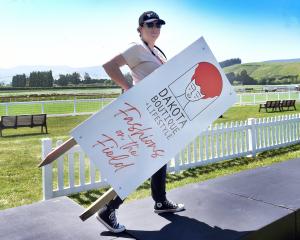Failure by health officials to accurately estimate PCR diagnostic capacity in laboratories this summer came after almost 20 years of poorly negotiated contracts that led to a fragmented system and staff being under-valued, New Zealand Institute of Medical Laboratory Science president Terry Taylor said.
"For the dedicated and hardworking but always understrength front line of dedicated medical laboratory scientists and technicians, the testing capacity situation in February was always going to happen," Mr Taylor said.
"This group of consistently under-resourced and respected health professions bore the brunt of being caught in between political expectation and real-time system failures."
Mr Taylor works for Southern Community Laboratories and his comments came after a national review found a backlog in PCR testing "should have been and was to some degree predictable".

The review, conducted by Allen and Clarke, found the Ministry of Health had not sufficiently planned for the extra pressure laboratory services would be subjected to.
By March 1, a backlog of 32,000 test samples older than five days had accumulated that laboratories advised would be destroyed due to "reduced clinical relevance and/or viability".
The backlog was cleared by mid-March when rapid antigen tests (Rats) gained prominence.
Director-general of health Dr Ashley Bloomfield apologised to the public in March and commissioned the review.
Among problems identified were misunderstandings that led to misinterpretation of the system’s ability to respond as Omicron cases surged.
Mr Taylor said too little heed had been taken of experts.
The laboratory science national institute had lobbied for an independent diagnostic laboratory specialist to have authority to override barriers between competing laboratory providers, he said.
"This would have effectively provided the knowledge and clout to create the bones of a truly national operational and governance approach to our pandemic testing response.
"The total reluctance to acknowledge that expert specialist medical scientists do understand more about national laboratory testing than politicians, health officials, medical doctors, mathematical modellers and epidemiologists was obviously too bitter a pill to swallow."
Dr Bloomfield acknowledged the failures.
"It’s clear from the review’s finding that, we could - and should - have done better on measuring and communicating lab capacity," he said.
"When I became aware of these inconsistencies, I informed ministers and worked with our testing team to ensure we could provide a more consistent and accurate picture of capacity that carefully considered the impact of Omicron."
National Party Covid-19 response spokesman Chris Bishop said the Ministry of Health had been found wanting.
"But ministers failed to act, instead relying on assurances from officials that New Zealand had enough testing capacity. New Zealand was slow on the uptake of Rats because it was assumed PCR testing capacity would suffice."
- Additional reporting The New Zealand Herald














